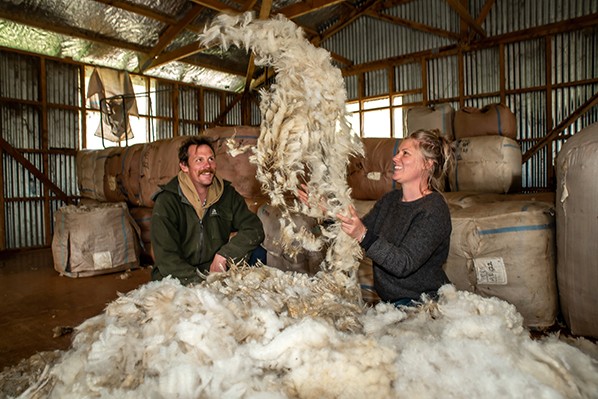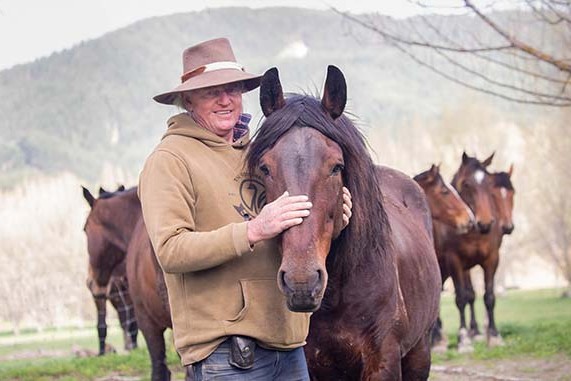In part two of the series looking at back-up plans for unforeseen events, Terry Brosnahan encounters a farmer who has used more than one.
Bell may not have had a plan B for when bad news came but he quickly developed one and, later, plans C and D.
He and his wife Tanya own Shag Valley Station, inland from Palmerston. For 13 years Johnny had worked on the station during the day and undergone kidney dialysis every second night. Then in August last year they got a call saying a kidney was available from a deceased donor. Johnny had the transplant in Christchurch and his life changed again.
After finishing school Johnny started training towards becoming a commercial pilot. However, a routine medical test picked up kidney issues he had been unaware of. This meant a change in career, and he headed to Lincoln College to do a Bachelor of Commerce degree. After graduation, his kidneys began to fail and the need for a transplant became inevitable. Following nine months of dialysis in Christchurch he was lucky enough to get a kidney from his mother, Louise. Farming became plan B.
For 17 years the kidney worked well until he was 39-years-old and a regular blood test showed a rise in the creatinine levels. There was acute rejection and it quickly failed.
“We were cruising along with a young family and it was a great shock.”
Johnny had to go back on dialysis.
After the first transplant his body created antibodies, which made finding the next kidney for transplant more difficult.
People are encouraged to consider donating their organs after they die. By doing so their actions could have life-saving benefits for a number of recipients.
“At least there is plan B for kidney failure and that’s dialysis,” Tanya says.
Dialysis required a major adjustment but Johnny wasn’t going to let it rule his life or his family.
For him the biggest challenge was his mindset. The transplant had failed but dialysis was going to keep him alive. He had a lot to live for with a wife and young family. His attitude was that it was just a machine and he was going to learn how to use it.
He says the Dunedin Hospital dialysis unit was fantastic. From the outset they told him the key to success was having good support and working as a team.
“They were right.”
He spent a month in Dunedin hospital and quickly learned how to use the machine. It pumps blood through a filter that removes impurities and water. Johnny didn’t like needles, and still doesn’t, but had to learn how to insert them into his arm.
Dialysis required strong self discipline and he started with a positive attitude.
Dialysis was carried out every second night over nine hours while he slept the best he could.
“It does take it out of you but I did get some sleep.”
The longer dialysis time meant the pump speed was slower and gentler on the body than if it was over a shorter five-hour session. Dialysis at night allowed him to work and participate in family activities. He even coached local rugby teams for 12 years.
He could do a full day’s work but had to be careful and protect his lifeline – the fistula in his arm. A fistula is a blood vessel widened by surgery for high blood flow, which a needle goes into for dialysis. In Johnny’s case it was a vein taken from his leg and joined up to an artery in his arm. If he had got a cut there it would have bled out. His vascular surgeon put it on the inside of his arm so it would not be damaged drafting sheep.
When he started on dialysis Johnny simplified farm operations by just selling stores. The Bells had a full-time worker and good neighbours to help. Once he was on top of the dialysis, farm operations returned to normal, improving performance and finishing stock. During dialysis he made sure Tanya could manage Cashmanager and the accounts, and knew about the running of the station. They now do the administration together.
The station runs 9800 stock units on 4500ha with 30% cattle and 70% sheep – Romney and Romney-cross ewes and Angus cows. They finish lambs on crops and lucerne and sell weaner calves.
Johnny is the fifth generation to farm the station. It is likely one or more of their three children will become the sixth. Lucy (22) graduated with first class honours degree in agricultural science from Lincoln University and works for Ravensdown in its graduate programme. Henry (20) studies environmental management at Otago University, and George (18) is in his first year at Lincoln studying valuation.
Mentally, Johnny never felt low when he was at home. The hardest moments were when he was stuck in a hospital ward and things weren’t going well, but being stuck in hospital made him grateful for having a problem that could be treated. He found focusing on the positive helped his mindset and health.
Tanya says Johnny was determined and disciplined. They worked as a team to get through.
Johnny says they are fortunate to own a farm with great staff because it could still generate income even if he couldn’t work.
Owning such an asset meant if they were forced into plan D, the family could sell the farm.
Today few things bother Johnny. If things go wrong on or off the farm it is not a major problem.
“It’s a bit of a cliche, but don’t sweat the small stuff.”




